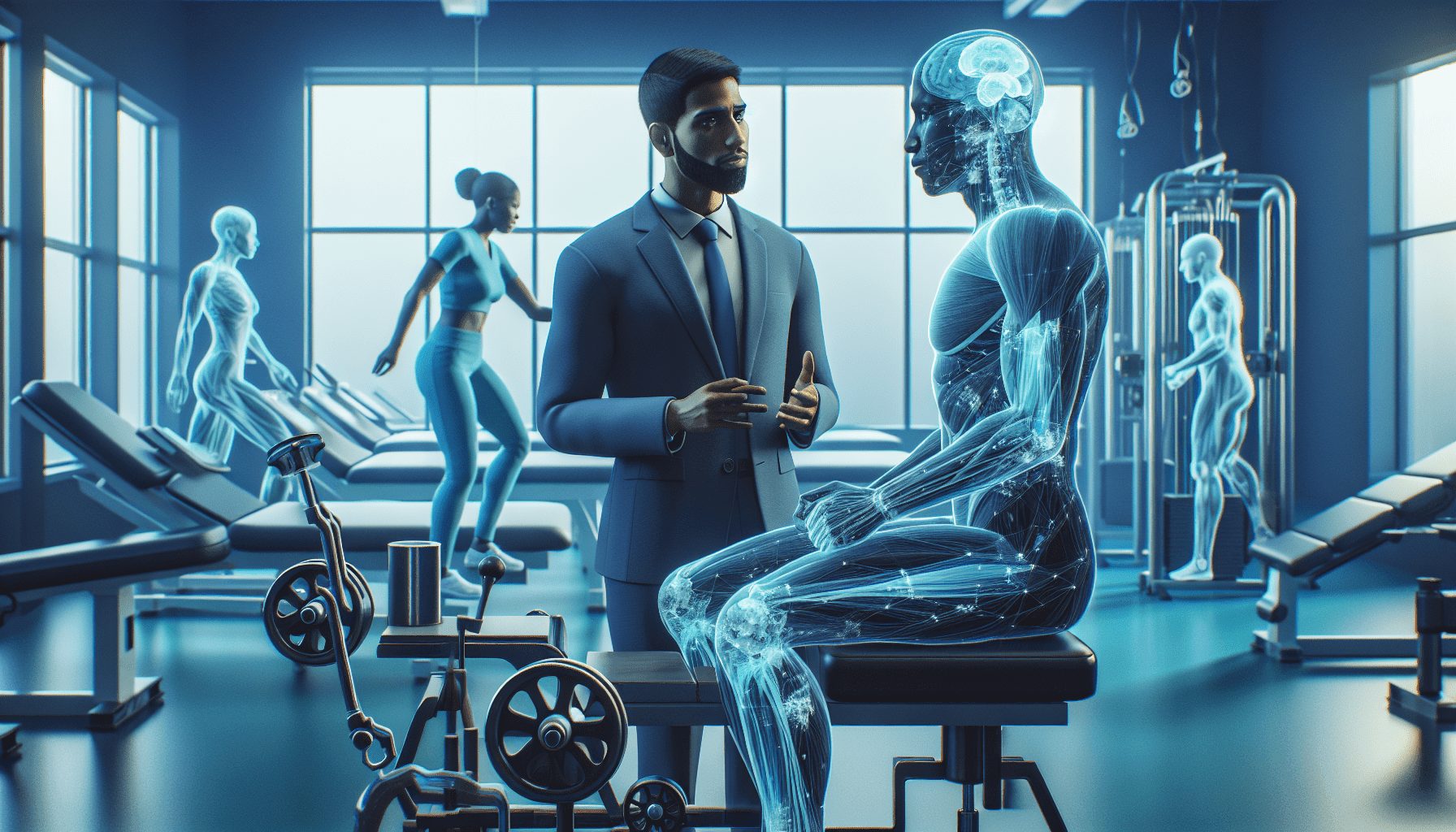AI Hiring Tools: How They Revolutionize Recruitment
Overview of AI Hiring Tools and Their Impact on Recruitment
In today’s rapidly evolving job market, AI hiring tools have revolutionized the way organizations approach recruitment. With the power of artificial intelligence and machine learning, these tools provide a range of benefits that streamline the hiring process, improve efficiency, and enhance the overall candidate experience.
Gone are the days when recruiters had to sift through stacks of resumes and conduct endless rounds of interviews to find the perfect candidate. With the advent of AI in recruitment, organizations now have access to a wide array of tools that automate and optimize various stages of the hiring process.
AI hiring tools offer a multitude of advantages that were previously unimaginable. Firstly, they greatly improve efficiency by automating time-consuming tasks such as resume screening, candidate matching, and pre-employment assessments. These tools can swiftly analyze vast amounts of data and identify top candidates, saving recruiters valuable time and effort.
Moreover, AI tools help address one of the most pressing challenges in recruitment: bias. Human bias, whether conscious or unconscious, can influence hiring decisions and lead to a lack of diversity in the workplace. AI hiring tools mitigate this issue by using algorithms that are designed to evaluate candidates based on their skills, qualifications, and experience, rather than personal characteristics or biases.
Another significant advantage of AI hiring tools is the enhanced candidate experience they offer. Traditional recruitment processes often leave candidates feeling frustrated and disconnected due to long response times and lack of personalized engagement. However, AI tools such as chatbots can engage with candidates in real time, providing prompt responses to inquiries and guiding them through the application process. This personalized interaction creates a positive candidate experience and fosters a sense of connection with the organization.
Furthermore, AI hiring tools enable organizations to achieve increased accuracy in candidate matching. By analyzing vast amounts of data from resumes, job descriptions, and assessment results, these tools can identify the best-fit candidates for specific roles. This ensures that organizations make informed hiring decisions and significantly reduces the likelihood of mismatched placements.
Lastly, the automation capabilities of AI hiring tools deliver substantial time savings throughout the recruitment process. From initial resume screening to video interviewing, these tools automate repetitive tasks, allowing recruiters to focus their time and energy on strategic and value-added activities. As a result, recruiters can process a larger volume of candidates in a shorter period, expediting the overall hiring process.
In the following sections of this article, we will explore popular AI hiring tools in more detail, discuss the challenges and considerations associated with their implementation, examine real-world case studies, and delve into the future of AI in recruitment.
Benefits of AI Hiring Tools
In the constantly evolving world of recruitment, AI hiring tools have emerged as a game-changer, revolutionizing the traditional hiring process. These tools leverage the power of artificial intelligence to streamline and enhance various aspects of recruitment, ultimately benefiting both employers and candidates. Let’s delve into some of the key benefits that AI brings to the table.
Improved Efficiency
One of the primary advantages of AI hiring tools is their ability to significantly improve efficiency in the recruitment process. With the help of AI-powered algorithms, tasks that used to take hours or even days to complete can now be accomplished within minutes. For instance, resume screening tools can swiftly scan and analyze resumes, identifying top candidates based on predefined criteria. This not only saves valuable time for recruiters but also ensures that no potential candidate is overlooked in the initial screening process.
Reduced Bias
Bias in the recruitment process has long been a concern, leading to unfair practices and hindering diversity and inclusion. AI hiring tools offer a solution by minimizing bias and promoting fairness. These tools are designed to evaluate candidates based on their skills, qualifications, and experience, rather than personal characteristics such as gender, race, or age. By removing human bias from the equation, AI tools help organizations build more diverse and inclusive teams, fostering innovation and creativity.
Enhanced Candidate Experience
In today’s competitive job market, providing an exceptional candidate experience is crucial for attracting top talent. AI hiring tools play a pivotal role in enhancing the overall candidate experience throughout the recruitment journey. For example, chatbots for candidate engagement can provide real-time responses to candidates’ queries, offering personalized assistance and guidance. This not only creates a positive impression of the company but also ensures that candidates feel valued and engaged throughout the process.
Increased Accuracy in Candidate Matching
Matching the right candidate to the right job is a complex task. AI hiring tools excel in this area by leveraging advanced algorithms to analyze vast amounts of data and identify the most suitable candidates for specific roles. By considering factors such as skills, experience, education, and cultural fit, these tools can make highly accurate candidate recommendations, significantly improving the hiring decision-making process. This not only saves time and effort for recruiters but also increases the likelihood of finding the perfect match for the job.
Time-saving Automation
Another major benefit of AI hiring tools is their ability to automate repetitive and time-consuming tasks. This automation frees up valuable time for recruiters, allowing them to focus on strategic and value-added activities. For instance, video interviewing platforms enable recruiters to conduct initial interviews remotely, eliminating the need for scheduling and travel logistics. Pre-employment assessments, powered by AI, can automatically evaluate candidates’ skills and competencies, providing valuable insights to recruiters without manual intervention. These time-saving features enable recruiters to operate more efficiently and accelerate the overall recruitment process.
In conclusion, AI hiring tools bring a multitude of benefits to the recruitment process. From improving efficiency and reducing bias to enhancing candidate experience and increasing accuracy in candidate matching, these tools are transforming the way organizations attract and select talent. By embracing the power of AI, companies can gain a competitive edge in today’s fast-paced and talent-driven market.
Stay tuned as we explore some of the most popular AI hiring tools in the next section.
Popular AI Hiring Tools
In today’s rapidly evolving job market, AI hiring tools have emerged as invaluable assets for recruiters and hiring managers. These innovative technologies leverage artificial intelligence and machine learning algorithms to streamline and optimize various stages of the recruitment process. Let’s explore some of the most popular AI tools that are revolutionizing the way organizations find and hire top talent.
Resume Screening Tools
Gone are the days of manually sifting through stacks of resumes. AI-powered resume screening tools are designed to automate the initial stages of candidate evaluation. These tools use natural language processing (NLP) algorithms to analyze resumes and identify key qualifications, skills, and experience. By quickly scanning and ranking resumes based on predefined criteria, these tools significantly reduce the time and effort required to shortlist candidates.
Video Interviewing Platforms
With the rise of remote work and global talent pools, video interviewing platforms have become essential for modern recruitment. These platforms utilize AI technology to conduct virtual interviews, allowing hiring teams to connect with candidates regardless of their geographical location. AI algorithms can analyze facial expressions, tone of voice, and body language to provide valuable insights into candidate suitability and cultural fit. Video interviewing platforms not only save time and resources but also enable more inclusive and diverse hiring practices.
Pre-employment Assessments
To gain deeper insights into candidates’ skills and capabilities, many organizations are turning to pre-employment assessments powered by AI. These assessments evaluate candidates’ cognitive abilities, personality traits, and job-related skills through a series of interactive tests. By leveraging AI algorithms, these tools can provide a comprehensive assessment of a candidate’s potential fit for a specific role. This data-driven approach helps recruiters make more informed decisions and identify candidates who possess the right mix of competencies for success.
Chatbots for Candidate Engagement
In an era where candidate experience plays a pivotal role in attracting top talent, chatbots for candidate engagement have emerged as a game-changer. These AI-powered chatbots can engage with candidates in real-time, answering frequently asked questions, providing updates on application status, and guiding them through the hiring process. By automating routine interactions, chatbots enhance the overall candidate experience, ensuring timely and personalized communication at scale.
Predictive Analytics for Hiring Decisions
Harnessing the power of big data and AI, predictive analytics enables organizations to make data-driven hiring decisions. By analyzing historical hiring data, candidate profiles, and performance metrics, predictive analytics algorithms can identify patterns and trends that correlate with successful hires. This empowers recruiters to make more accurate predictions about a candidate’s future job performance, enabling them to hire candidates who are likely to thrive within the organization.
These popular AI hiring tools are just the tip of the iceberg. As technology continues to advance, new and innovative solutions are constantly emerging to revolutionize the recruitment landscape. In the next section, we will explore the challenges and considerations associated with implementing AI hiring tools and the future trends that are shaping the industry.
Continue reading: Challenges and Considerations
Challenges and Considerations
As with any technological advancement, the implementation of AI hiring tools in recruitment comes with its own set of challenges and considerations. While these tools offer numerous benefits, it is essential to address the ethical concerns, ensure data privacy and security, maintain human oversight and intervention, and recognize the potential limitations of AI in recruitment.
Ethical Concerns
One of the primary challenges in using AI hiring tools is navigating the ethical implications. As AI algorithms analyze candidate data and make decisions, there is a risk of perpetuating biases and discrimination. If the data used to train the AI models is biased or reflects existing societal prejudices, it can inadvertently perpetuate inequality in the hiring process. It is crucial for organizations to ensure that AI tools are designed and trained in a way that promotes fairness and equal opportunity for all candidates.
Data Privacy and Security
The use of AI in recruitment involves handling vast amounts of candidate data, including personal information, resumes, and interview recordings. Ensuring the privacy and security of this data is paramount. Organizations must implement robust data protection measures to safeguard sensitive information and comply with relevant data privacy regulations. Additionally, they should carefully evaluate the security measures employed by AI vendors to mitigate the risk of data breaches or unauthorized access.
Human Oversight and Intervention
While AI hiring tools can automate various aspects of the recruitment process, it is crucial to maintain human oversight and intervention. Human judgment plays a vital role in understanding the nuances of candidates’ skills, experiences, and cultural fit. Human recruiters bring empathy, intuition, and contextual understanding that AI algorithms may struggle to capture fully. Organizations must strike a balance between leveraging AI’s efficiency and accuracy while ensuring that human recruiters remain involved in the decision-making process.
Potential Limitations of AI in Recruitment
Despite the advancements in AI technology, there are certain limitations to consider when using AI hiring tools. These limitations stem from the inherent nature of AI algorithms, which rely on historical data to make predictions. If the historical data used to train the AI models is not representative or if the job requirements evolve over time, the AI algorithms may not accurately assess candidates’ suitability. Organizations need to be aware of these limitations and continuously evaluate and improve the AI models to ensure their effectiveness in the ever-changing recruitment landscape.
In the face of these challenges and considerations, it is essential for organizations to approach the adoption of AI hiring tools with caution and responsibility. By addressing ethical concerns, prioritizing data privacy and security, maintaining human oversight, and understanding the limitations of AI, organizations can harness the power of these tools while ensuring a fair and effective recruitment process.
Click here to learn more about AI hiring tools and their impact on recruitment.
Case Studies
In this section, we will explore some success stories of companies that have embraced AI hiring tools and witnessed significant improvements in their recruitment processes and outcomes. These real-world examples demonstrate the tangible benefits that AI can bring to the hiring process.
Success stories of companies using AI hiring tools
Company A is a global technology firm that was struggling to efficiently screen the large volume of resumes they received for various positions. They implemented an AI resume screening tool that utilizes natural language processing and machine learning algorithms to analyze resumes and identify the most qualified candidates. This tool significantly reduced the time and effort required for manual resume screening. As a result, Company A experienced a substantial increase in their recruitment efficiency, allowing their HR team to focus on more strategic tasks.
Company B, a leading retail chain, faced the challenge of reducing bias in their hiring process. They implemented an AI-powered video interviewing platform that used facial recognition technology to assess candidates based on their responses and facial expressions. This tool helped Company B overcome unconscious biases that could influence hiring decisions. By relying on objective data and removing subjective judgments, the company achieved a more diverse and inclusive workforce.
Examples of improved recruitment processes and outcomes
Company C, a growing startup, struggled with finding the right candidates for their specific roles. They implemented an AI-based pre-employment assessment tool that used predictive analytics to match candidates’ skills and qualifications with job requirements. This tool not only saved time but also improved the accuracy of candidate matching. As a result, Company C experienced a significant reduction in turnover rates and an increase in employee satisfaction, as they were able to hire candidates who were the best fit for their organization.
Company D, a large multinational corporation, faced the challenge of engaging candidates throughout the recruitment process. They implemented a chatbot for candidate engagement, which used natural language processing to interact with candidates, answer their questions, and provide personalized assistance. This tool enhanced the candidate experience by providing timely and helpful responses, leading to increased candidate satisfaction and a positive employer brand image.
These case studies demonstrate the transformative power of AI hiring tools in improving recruitment processes and outcomes. By leveraging AI technologies, companies can streamline their hiring processes, reduce bias, enhance candidate experiences, increase accuracy in candidate matching, and save valuable time. The success stories highlight the potential of AI to revolutionize recruitment practices and drive better results for organizations.
Continue reading to learn more about the challenges and considerations associated with AI hiring tools in the next section.
Future of AI in Recruitment
As AI continues to evolve and shape various industries, its impact on recruitment is only expected to grow. The future of AI in recruitment holds exciting possibilities, with emerging trends and innovations paving the way for more efficient and effective hiring processes.
Emerging Trends and Innovations
One of the key emerging trends in AI recruitment is the integration of AI with Applicant Tracking Systems (ATS). ATS software is commonly used by recruiters to manage and streamline the hiring process, and by integrating AI capabilities into these systems, recruiters can further enhance their efficiency. Companies are now using AI algorithms to analyze and interpret resumes, cover letters, and other application materials, allowing for faster and more accurate candidate screening. These AI-powered ATS systems can identify relevant keywords, match candidates to job requirements, and even predict a candidate’s likelihood of success in a role.
Another emerging trend in AI recruitment is the use of chatbots for candidate engagement. Chatbots provide a personalized and interactive experience for candidates, answering their questions, providing information about the company and job opportunities, and even conducting initial screenings. This not only saves time for recruiters but also enhances the candidate experience by offering quick and efficient responses.
Integration with Applicant Tracking Systems
The integration of AI with Applicant Tracking Systems is a game-changer in the recruitment industry. By leveraging AI algorithms to automate resume screening and candidate matching, recruiters can significantly reduce the time and effort involved in reviewing numerous applications. This allows them to focus on more strategic tasks, such as building relationships with candidates and conducting in-depth interviews.
AI-powered ATS systems also enable recruiters to proactively source and engage candidates. By utilizing AI algorithms to analyze vast amounts of data from various sources, recruiters can identify potential candidates who may not have applied directly. This expands the talent pool and increases the chances of finding the best-fit candidates for open positions.
Balancing Human Judgment and AI Assistance
While AI brings numerous benefits to the recruitment process, it is essential to strike a balance between AI assistance and human judgment. AI tools should be seen as a complement to human decision-making rather than a replacement. Human oversight and intervention are crucial to ensure fairness, ethical considerations, and to address any potential biases that AI algorithms may introduce.
Recruiters play a vital role in assessing soft skills, cultural fit, and other intangible factors that cannot be accurately measured by AI algorithms alone. By combining the insights and expertise of recruiters with the efficiency and accuracy of AI tools, organizations can achieve optimal hiring outcomes.
As AI continues to advance, it is important for recruiters and organizations to stay up-to-date with the latest trends and innovations in AI recruitment. By embracing the possibilities that AI brings, recruiters can streamline their processes, improve candidate experiences, and ultimately make more informed hiring decisions.
In the next section, we will explore some real-world case studies that highlight the success stories of companies using AI hiring tools. Stay tuned!
Internal links:
- Learn more about AI recruiting tools that are transforming the recruitment landscape.
- Discover how AI-based recruitment platforms are revolutionizing the hiring process.
Conclusion
In conclusion, the advent of AI hiring tools has brought about a revolution in the recruitment process. These tools offer a wide range of benefits that can significantly improve the efficiency and effectiveness of hiring practices.
Firstly, improved efficiency is a key advantage of AI hiring tools. With the ability to automate time-consuming tasks such as resume screening, video interviewing, and pre-employment assessments, recruiters can save valuable time and focus on more strategic aspects of the hiring process. This not only speeds up the recruitment timeline but also allows recruiters to handle a larger volume of applicants without compromising quality.
Secondly, AI hiring tools help to reduce bias in the recruitment process. By removing human subjectivity and relying on data-driven algorithms, these tools can minimize the impact of unconscious biases that may influence hiring decisions. This promotes fairness and diversity within the candidate pool, ensuring that qualified candidates are given equal opportunities.
Furthermore, AI tools contribute to an enhanced candidate experience. Through the use of chatbots and automated communication systems, candidates can receive real-time updates, personalized feedback, and answers to their queries. This improves transparency and engagement, ultimately leaving candidates with a positive impression of the hiring process and the company.
Another advantage is the increased accuracy in candidate matching. AI algorithms can analyze vast amounts of data to identify the most suitable candidates for specific roles. By considering factors such as skills, experience, and cultural fit, these tools can significantly improve the accuracy of candidate selection, leading to better hiring outcomes.
Lastly, AI hiring tools provide time-saving automation across various stages of recruitment, from sourcing candidates to making hiring decisions. With the help of predictive analytics, recruiters can make more informed decisions based on data-driven insights. This not only saves time but also enables recruiters to make more objective and data-backed choices.
However, it is important to consider the challenges and considerations associated with AI hiring tools. Ethical concerns, such as potential biases in algorithms and the responsible use of candidate data, need to be addressed. Data privacy and security are also critical considerations, as AI tools rely on vast amounts of personal information. Human oversight and intervention are necessary to ensure that AI systems are used ethically and responsibly. Additionally, it is important to acknowledge the potential limitations of AI in recruitment, such as the inability to assess certain soft skills or human intuition.
Despite these challenges, numerous case studies have demonstrated the success of companies using AI hiring tools. These examples showcase improved recruitment processes, reduced time to hire, and enhanced quality of candidates. Companies have reported higher retention rates and increased diversity within their workforce as a result of incorporating AI tools into their recruitment strategies.
Looking ahead, the future of AI in recruitment holds promising prospects. Emerging trends and innovations, such as the integration of AI with Applicant Tracking Systems, will further streamline and optimize the recruitment process. Striking the right balance between human judgment and AI assistance will be crucial to ensure that the human touch is not compromised. By leveraging the power of AI while retaining the human element, organizations can unlock the full potential of AI in recruitment.
In conclusion, AI hiring tools have revolutionized the recruitment landscape by offering improved efficiency, reduced bias, enhanced candidate experience, increased accuracy in candidate matching, and time-saving automation. As these tools continue to evolve and reshape the recruitment process, organizations need to embrace the benefits while addressing the ethical considerations and potential limitations. By harnessing the power of AI, companies can gain a competitive edge and make more informed, data-driven hiring decisions.







